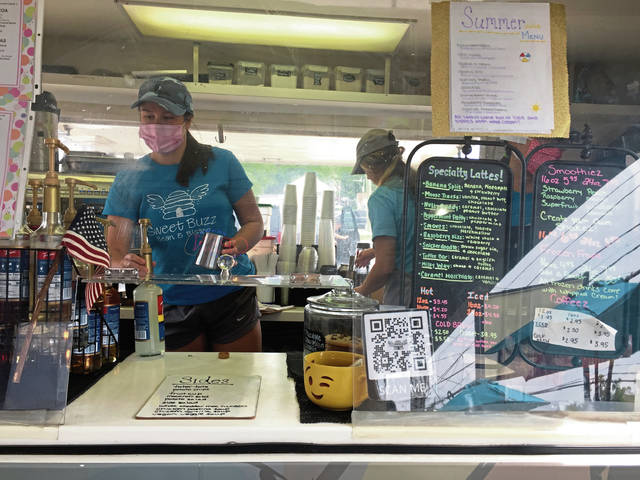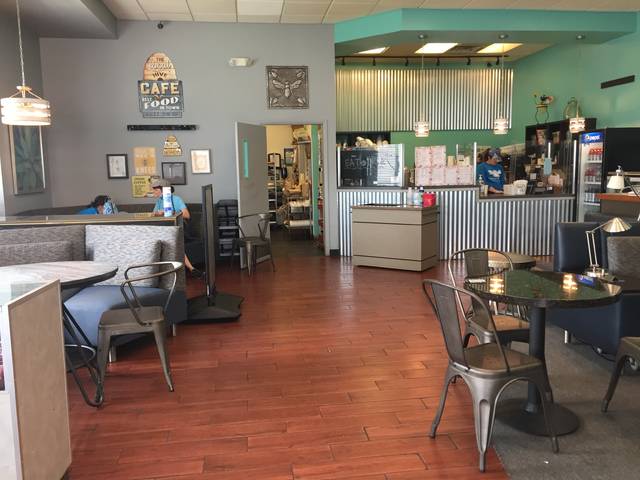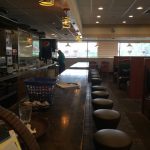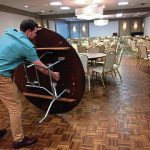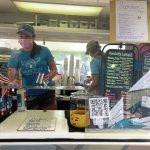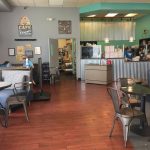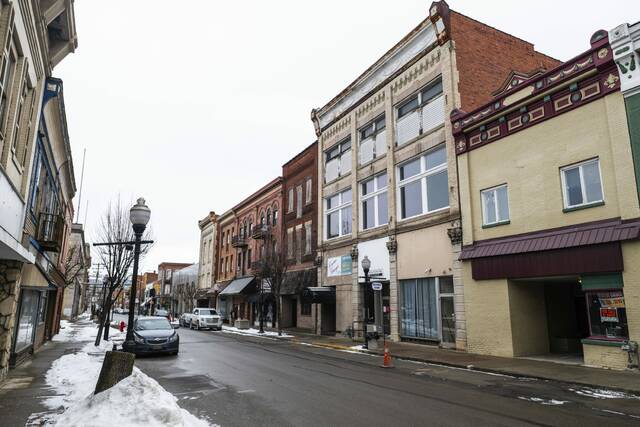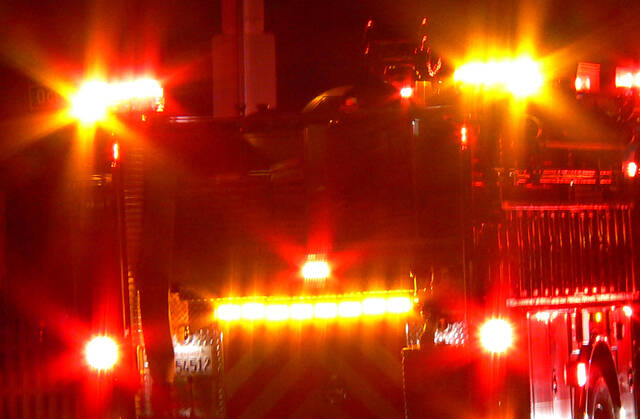Beginning on Memorial Day, restaurants and other businesses were permitted to open at full capacity, seemingly a positive sign after a year of covid-19 mitigation measures took their toll on the industry.
But being allowed to open at full capacity is not the same as actually having the resources to do so, said Tyler Belden- England, director of culinary operations at DiAnoia’s Eatery in the Strip District.
“There are two versions of getting back to normal,” he said. “There’s the version the public sees — where they see we’re able to open at 100%, things should be operating the way they were pre-pandemic. And then there’s the reality that we don’t have the staff to open at 100%. It’s a problem we’re facing industrywide.”
While Belden-England said it was “exciting to have a sense of normalcy, at least on the horizon,” restaurant operations are not normal yet.
Julian Vallozzi, owner of Vallozzi’s in Greensburg, said he thinks it will take at least a year before restaurants are back to their pre-pandemic operations.
“There’s an assumption that restaurants are through it and it’s smooth sailing, but we’re far from being through it,” he said.
Staffing shortages — which have been plaguing the industry for months — remain a concern, as many restaurants simply don’t have the workers to reopen fully.
“Staffing is a very big problem, to the point that most restaurants I know of, including my own, are not going to be going back to 100% any time soon,” said Vallozzi, who added he needs to hire at least seven workers before returning to full capacity.
At DiAnoia’s, they’re operating at about 50% capacity, plus outdoor seating, Belden-England said. There is a fine line to determine how much they can do without overworking their staff or letting quality drop.
“Coming out of a year of losses, we really don’t want to put ourselves in a position where we’re turning down revenue,” he said. “We really try to do as much as we can.”
While juggling staffing shortages and ever-changing covid-19 guidelines, Belden-England said restaurant workers also are trying to determine how to handle mask requirements. The CDC recently amended its mask guidelines, saying fully vaccinated individuals do not have to wear masks in public. But it’s not easy to determine who is and isn’t vaccinated.
“They really put us in an awkward position where it became our job to police whether people are vaccinated,” he said, noting that most of their hosts are high-school age students who may feel uncomfortable with potentially sparking confrontations on the topic of vaccinations and masks. “We felt it wouldn’t be fair or prudent to have them be asking customers whether they had their vaccination card. We decided it’s just going to be the honor system.”
At Vallozzi’s, masks are now optional for fully vaccinated customers — but full capacity is still out of reach.
Staffing isn’t the only problem plaguing Vallozzi’s, where “there certainly is no profit margin,” even as restrictions ease.
“The supply chain is in very bad shape,” Vallozzi said. “Our food prices are the highest I’ve ever seen them in my life. We’re going to have to adjust our prices or trim our menu, none of which the consumer likes to see. Those issues are a result of staffing shortages as well as a year of supply chains being shut down. It’s a mess.”
Pizza Siena owner Turgut Alikaya is in the same bind as so many other restaurant owners in the region — some customers are coming back from their government-imposed restrictions, but he needs more people to cook, serve, work the front desk and drive the take-out meals to people.
Alikaya said he has had to limit the the hours he can serve meals to customers because of the lack of kitchen help. When someone does respond to a help wanted ad and comes in for an interview, Alikaya said they often don’t show up for the required training and don’t have the courtesy to tell him.
Alikaya, who owns Pizza Siena eateries in Latrobe and North Huntingdon, said he has a good core of workers, some of whom have been with him for many years, but he needs more.
Even offering higher wages, hasn’t helped attract people to actually take the job, Alikaya said.
“How can small business compete,” Alikaya said, when corporate chains like Burger King are offering a $1,500 signing bonus. “They’re hurting tremendously.”
Alikaya says the extra $300 a week that jobless workers are getting from the federal government makes it hard for businesses to get people to work.
Business has been slow to return to pre-pandemic levels. His restaurants are doing maybe 50% or so of the business it did before the pandemic, Alikaya said.
The pandemic forced the closure of Alikaya’s Turkish restaurant in the Greensburg Shopping Center, because he could not find another Turkish chef to cook original Turkish cuisine, said Alikaya, a native of Turkey.
When the state forced restaurants to close to indoor dining last spring, he had to close the eatery and the chef left for another job. He has tried, but has so far been unable to convince another Turkish chef to relocate to Greensburg, Alikaya said.
At Sam’s Tavern in the Wall in Aspinwall, owner Sam Sieber said he, too, is struggling to reopen fully when increasing food costs forced him to re-evaluate the menu, removing items like chicken wings that are simply too pricey now.
“It’s almost double what we were paying before,” he said.
Sieber said he was removing the x’s that denoted tables that weren’t being used because of social distancing requirements. He’s trying to reopen his restaurant at full capacity, but he’s short-staffed and struggling to maintain his menu with supply shortages.
Masks and social distancing are no longer required at his restaurant, Sieber said, and he’s hoping the restaurant will now feel “relatively normal.”
While many restaurants are still struggling, things are looking up at Roman Bistro in Forest Hills, owner Anthony Roman said Tuesday.
He’s still short-staffed, but said they now have applicants to fill those spots. They’re still focusing on sanitizing and cleaning, but they’re nixing mask requirements for fully vaccinated customers and employees.
“We’re looking forward to this new season now,” he said. “Customers are excited to get out and we’re excited to finally see the smile on their face.”
The restaurant was closed on Memorial Day, but reopened at full capacity on Tuesday.
“We feel great about it —finally, we’re open,” he said.
While he’s eager to welcome customers back to the restaurant at full capacity, Roman said some pandemic changes will remain. Takeout, which became popular during the pandemic, will remain a staple at the restaurant now, he said. They’ve gotten better at offering takeout, improving packaging and offering online ordering.
Moving to full capacity was a “pretty smooth transition” at Hoffstot’s Cafe Monaco in Oakmont, said office manager Nicole Shelestak.
“This has been a long time coming,” Shelestak said. “We were just waiting for the green light to go ahead. Everyone’s very excited to go back to full capacity.”
The restaurant is open at full capacity but closed on Mondays to ensure they aren’t overworking their staff. They, too, are short-staffed.
Like other restaurants, Hoffstot’s is focusing on cleaning, even as pandemic restrictions ease. Shelestak said the restaurant is “probably the cleanest it’s ever been.” Employees are still wearing masks, though masks are recommended but not required for vaccinated customers.
“It feels great to be able to open at full capacity and use all of our tables,” she said, adding that they’re also able to use their newly-renovated bar. “Our sales are good and it’s great to see familiar faces back at the bar and in our tables.”
At Anchor Inn in Harrison, owner Joe Kolek said he’s among the many restaurants that aren’t able to return to 100% capacity.
“We’re going to do the best we can with what we got,” he said.
Even at restaurants like Kolek’s, where full capacity is not yet attainable, there are signs things are returning to normal. Vaccinated workers and customers can enter the restaurant mask-free, and Kolek reconfigured tables now that social distancing isn’t required.
There are things customers can do to help restaurants as they continue to work toward fully reopening and returning to pre-pandemic normal, Kolek said.
He recommended visiting restaurants at non-peak times. During peak dinner times, he said, customers may see longer waits as the restaurant operates with a limited staff and some diners, eager to be out after the last year, linger longer than usual at their tables.
“If you would scatter your times a little bit, it’d help the restaurants and it’d probably give you a better experience as a customer because you wouldn’t have to wait,” he said.
Andrew Ferri, general manager of The Lamplighter Restaurant in Delmont, said he expects little immediate change apart from an increase in the number of people coming in groups for private gatherings.
The Lamplighter does not have the staff to keep up with the increase in customers that has come with restrictions being lifted, said Ferri, of Delmont. He said the whole restaurant industry has experienced difficulties hiring new workers and bringing previous employees back.
Ferri said some are making more money from unemployment than they would from working and others have turned to other types of work.
“I think a year of everything being turned upside down might have made some people who have been in the industry for a very long time rethink their choices,” he said.
Ferri said the trend of shortened staffing has been highlighted across the restaurant industry.
“The restaurants have empty tables, just like here. It’s not lines out the door,” he said. “Guests don’t always understand… that the industry is all about creating the experience. (Restaurants) would rather turn you away than have you come in and have a bad experience and never come back.”
The Lamplighter will maintain distanced seating to make customers feel safe and comfortable visiting the restaurant, he said. Moving forward, Ferri said he may have to find a way to resume live bands and entertainment.
Dawn Roberts, owner of Sweet Buzz Bean & Bistro in Harrison City, said she also plans to maintain the current seating arrangements, plexiglass barriers and outdoor serving stand to ensure customer and employee safety.
“We are still going to be cautious about things we didn’t really think about before all of this,” Roberts said.
She said having some restrictions lifted along with an increase in vaccination rates – including among her staff – has been a “relief.” And getting more customers in recent weeks also have been encouraging.
“It gives you a lot of hope to just be positive about everything,” she said.
Vallozzi urged customers to continue ordering takeout and buying gift cards.
Belden-England said the biggest way customers could support restaurants as they inch toward fully reopening is to simply be respectful and understanding.
“The biggest thing they can do is be patient,” he said. “All the restaurants you see are working their absolute hardest, and the last thing we want to do is give somebody bad service.”





